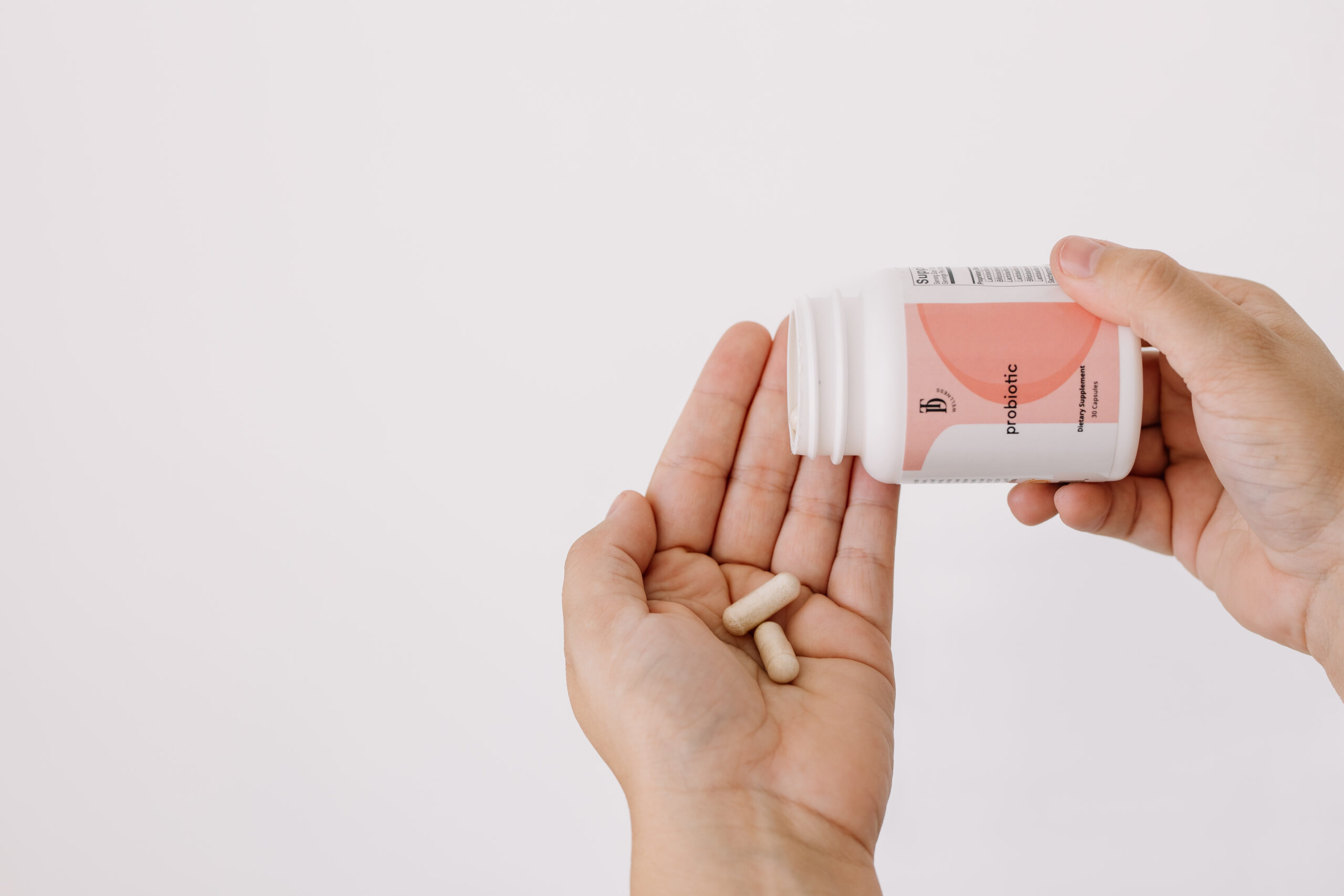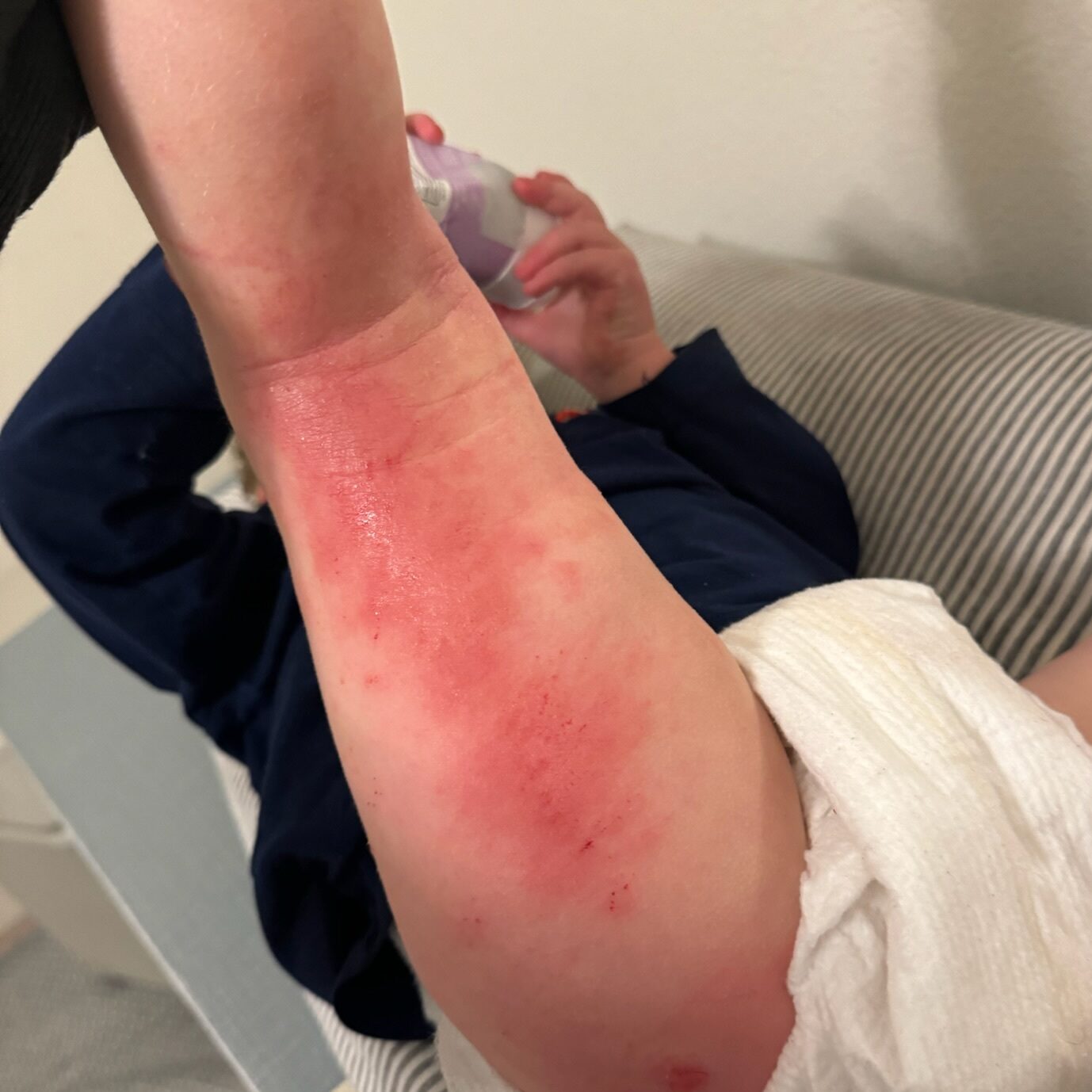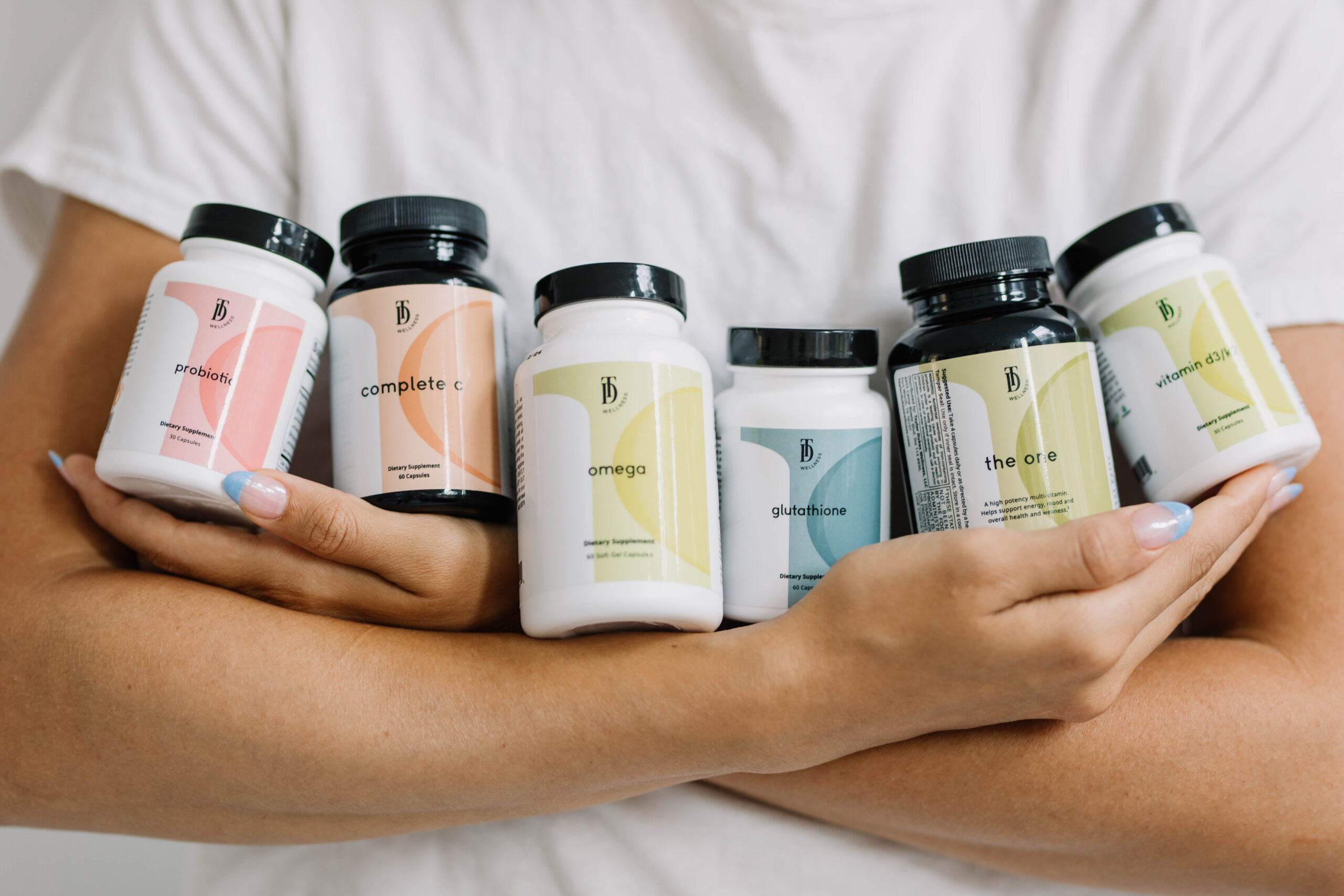Tired of Constant Bloating? Here’s What You Need to Know

Are you a person who seemingly bloats after every meal? You don’t wear certain pants to dinner because they will be too tight… You’re thinking, “nope, it’s just a taco baby today”.
It’s a struggle, right?
Well, there could be a couple of things contributing to this bloat you have going on. While it can make you feel insecure (real talk here), it can also be super uncomfortable and frustrating!
You might experience discomfort, stomach distention, flatulence, burping, and the desire to hide when your stomach starts talking at the meetings (aka the dreaded stomach rumbles).
Here’s what could be causing your bloating, and when you should reach out to a functional medicine care provider for a further work up and assessment.
Three Main Bloating Contributors
What’s causing your bloat? It could be from gas, fluid retention, imbalance bacteria or just plain air. The easiest one to avoid is air.
You may swallow air while chewing gum, smoking, drinking carbonated drinks, or gulping in air when you are eating- usually while you are eating too fast, so slow down there and give yourself some time to taste your meal and digest your food.
Causes of Gas Bloating
Depending on the underlying cause, the gas build-up in your stomach could be any of the following:
-
Methane
-
Hydrogen
-
Oxygen
-
Nitrogen
-
Carbon Dioxide
When clients come to me, bloating may not be their main issue; however, it’s bunched in with several other symptoms. Yet, bloating is still a cause of concern and not normal.
Through testing, analysis, and patient history/lifestyle, we find out the root cause and address it to combat your bloating. Here are some common underlying issues that cause belly discomfort, stomach distention, and flatulence from gas build-up.
Dairy
Many people experience bloating after consuming dairy products such as ice creams, creamy soups, dressings, creamy pasta, etc. This is because some individuals don’t have an enzyme that breaks down lactose into smaller digestible pieces. This is called lactose intolerance.
This causes the undigested food to travel into the colon, where bacteria feed on the lactose, fermenting it and creating gas as a byproduct. This gas can cause flatulence along with the above stated bloating symptoms.
Sometimes, even if you’re not lactose intolerant per se, you can still have a sensitivity to other proteins found in dairy products, like whey and casein. Dairy sensitivities can also lead to inflammation, which damages your gut and can exacerbate your poor digestion and other unwanted side effects.
Food Sensitivities
Food sensitivities can cause a number of symptoms, including bloating. This one is tricky for a lot of people because many people don’t associate certain food with their symptoms. Unlike an allergic reaction where symptoms occur/exhibit pretty much right away, food sensitivity symptoms may show up hours or even a couple of days later.
While you can try to figure out what is causing your bloating by keeping a food journal or doing an elimination diet, you may want to take a food sensitivity test to find out for sure. Common food sensitivities I see in my practice are gluten, dairy, and eggs.
I use this test with my clients because it’s common for people to be sensitive to at least one food, causing them hidden inflammation, poor digestion, or annoying symptoms like headaches and constipation. I also want to add that if you are reacting to a lot of foods, it is likely due to an underlying gut issue, and in that case, stool testing can be helpful.
Dysbiosis
Your gut is made up of trillions of bacteria, both beneficial strains, and harmful ones. Dysbiosis is when your gut microbiome is imbalanced. Your bad bugs flourish and overtake your good bugs.
This can cause a number of issues because those helpful bacteria play a role in keeping your gut lining and mucosal barrier strong as well as supporting healthy digestion. When your bacteria is imbalanced, it can also impair your digestive function.
If your gut contains more harmful bacteria, it can impair peristalsis, affecting the wave-like muscle contractions that move your food down the digestive tract. This is what could be causing your bloating or constipation. I do stool testing when I work with clients 1:1 to identify what is going on in the gut and if dysbiosis is an issue.
SIBO
SIBO stands for Small Intestine Bacterial Overgrowth. It’s normal to have bacteria in your gut, and they usually reside in your large intestine.
However, sometimes the bacteria gets out of hand and expands into the small intestine. This bacteria feeds on undigested food, which causes fermentation and gas build-up.
The kind of bacteria that colonizes your small intestine will determine if methane or hydrogen gas is a byproduct. Both types of SIBO can cause significant bloating, food sensitivities, and sometimes diarrhea and constipation.
It’s important to get care from a functional medicine provider because sometimes “gut-supporting” techniques can actually make SIBO conditions worse. Taking probiotics, for example, is usually suggested for good gut health. However, if you take these before you clear up SIBO, it can contribute to more gas, bloating, and even brain fog.
Candida Overgrowth
Candida overgrowth is similar to SIBO in terms that there is an overgrowth of something in your gut. Instead of excess bacteria, there is an excess of yeast growing. This results in massive fermentation going on. Your gut becomes bloated because of the gases that are being let off. Just like how yeast causes bread to rise, it causes your belly to rise. Hello, baby bump… I mean gas bump.
You may be more susceptible to Candida overgrowth if you:
-
Have a weakened immune system
-
Are struggling with an autoimmune condition or on steroids
-
Use antibiotics frequently
-
Are on birth control pills
-
Suffer from diabetes
Cause for Fluid Retention Bloating
Sometimes your bloating isn’t caused by gas, but from excess fluid building up in your body. Here are some reasons why your body might be holding on to some extra fluid.
Hormone Imbalance
An imbalance of estrogen to progesterone could cause your body to hold onto more water. You may also notice this during certain times of your menstrual cycle or during early pregnancy.
Also, if your cortisol (stress hormone) levels are elevated, it could also be causing your bloating.
If there are times when you are feeling stressed out, like when you’re trying to juggle your kids and your workload (running a business is tough!), you might notice that your stomach issues are more prominent during this time.
How To Relieve Bloating
Try stress management techniques to help rid that bloat
Give yoga or meditation a try. If that’s not your thing, try going for a simple walk in nature to help reduce your stress, lower cortisol levels, and rid your bloat.
Reduce salt intake
Processed foods like frozen meals, chips, or “healthy” alternatives, may have huge amounts of sodium. Check the nutrient label to be sure. Or better yet, stick to whole foods and try different herbs and spices instead. My favorite salt to add to fresh healthy food can be found here.
Slow down and chew your food
Given our pace of life these days, we are always eating on the go, working or just eating quickly. Slow down, chew your food and practice mindful eating. This can have a significant impact on not only how you digest your food, but also how it affects your bloating.
Work with a functional medicine provider
We can run special functional tests to see any hidden causes of your bloating. Sometimes there are more serious consequences that could occur in addition to your bloat and it’s important to do a work up.
Testing can give you more accurate information, so we know exactly why you have a gas baby every time you eat! I use food sensitivity, stool, and SIBO when working with patients.
Want A Provider You Can Trust?
Choosing to work with a functional medicine provider is one of those life-changing decisions. I had my own gut and health problems that I battled with, and it wasn’t until I received care from a functional medicine doctor that I truly was able to heal.
I want to make sure that every person knows they have the option of getting this kind of care. While conventional medicine is great and very much needed for certain health issues, I believe that functional medicine is the answer to many underlying health conditions and diseases.
Don’t ignore “simple” symptoms any longer. Symptoms are your body’s way of telling you that something isn’t quite right.
Get Your Gut Right
If you need access to a stool test, a gut health expert, and personalized protocols, the Get Your Gut Right program might be the right fit for you. This is a comprehensive health reset program that also focuses on nutrition, detox pathways, the nervous system, clean environment, and more. Click HERE to learn more.
Stay Updated With Exciting News at Taylor Dukes Wellness!
We are always working on new ways to serve you on your health journey. Be the first to know about new offerings, health articles, and more by clicking here and filling out your information so we can be in touch.
Share This Post:
Your Wellness Deep Dive
- Be the first to learn about new healthy living resources, blog posts, and exclusive TDW offerings by getting on my insider list.
- Find healthy living products with ingredients you can trust – the same ones I personally use for myself and my family – in the TDW Shop. Check out our protein powders, electrolytes, supplements, and more!
- Get personalized support through the TDW Community. When you become a member, you get access to functional medicine expertise from me and my team, functional medicine lab testing and 1:1 consults, a digital library of exclusive wellness content, live monthly Q&As with me, and so much more!
YOU MAY ALSO LIKE:
Helping you get your gut right, improve energy, boost immunity, balance hormones, sleep better and look + feel your best
DISCLAIMER
PRIVACY POLICY
TERMS + CONDITIONS
ACCESSIBILITY
© 2024 Taylor Dukes Wellness
LEARN
SHOP
ABOUT
TDW Community
Free Guides
Blog
TDW Store
Fullscript
About Taylor
Press
Contact
COOKIE POLICY
SITE CREDIT
Trusted Products



